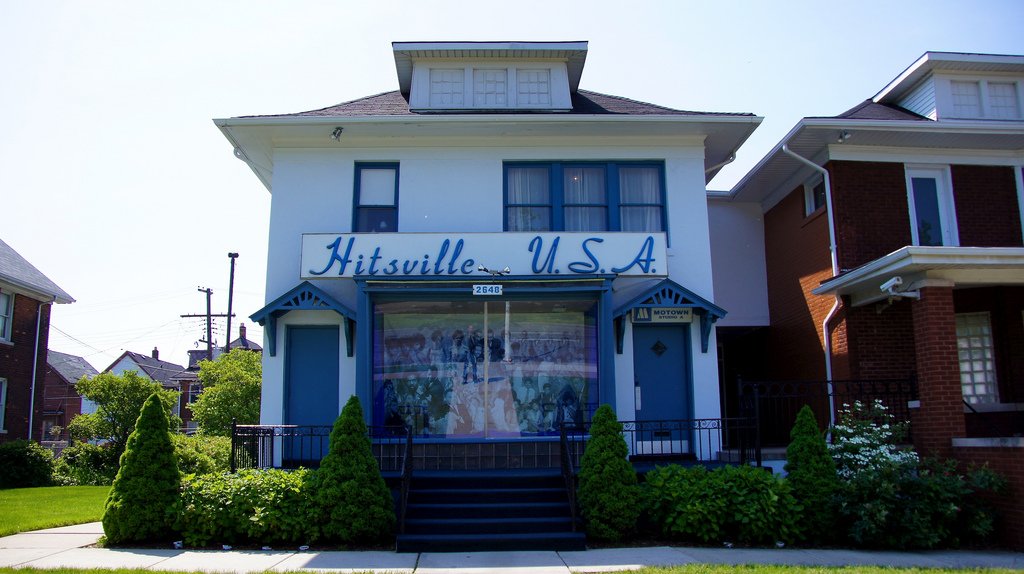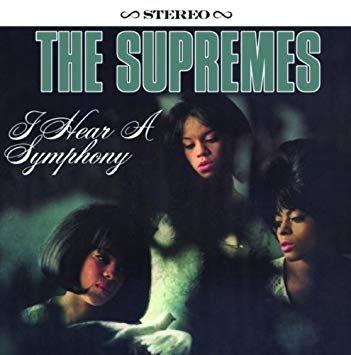In the late ’60s and early ’70s, Berry Gordy had the idea of opening a west coast operation, one that could bring the Motown sensibilities to filmmaking, TV, and Hollywood. This is how the Jackson 5 got a variety show, and how Diana Ross eventually transitioned into acting. Gordy also opened the MoWest label, ostensibly to release R&B records that spoke more to the Cali lifestyle, but mostly ended up as lost curios for cratediggers to discover. Gordy shuttered the label in 1973 when he moved the rest of Motown’s operations to L.A.
But MoWest did have one potential huge star on their roster during the two years it existed: Syreeta Wright, briefly Stevie Wonder’s wife and, more substantially, a close musical collaborator. Wright was born in Philadelphia and came into the Motown orbit via Brian Holland of the HDH triumvirate, who noticed her singing and thought she’d be perfect to sing demos of Supremes songs, which she did for a few years. She sang the demo of “Love Child,” and other Supremes cuts, and sang backup on Martha and the Vandellas records. She was noticed by Gordy, who shortened her name to “Rita Wright,” and had her record a debut single that didn’t go anywhere in 1968. It was around this time she met Stevie Wonder, then Motown’s wunderkind, who encouraged her to become a songwriter. They’d enter into a romantic relationship and be married the next year, but their songwriting relationship started quicker, yielding “It’s A Shame,” a hit by the Spinners. She sang backup on “Signed, Sealed Delivered” with Wonder and they both wrote and recorded material for Where I’m Coming From and Talking Book, his two breakout solo LPs. In 1970, Wright was considered as a replacement for Diana Ross in the Supremes, but instead, she remained solo. Around that time, Wright and Wonder divorced after just 18 months, though they continued to work on music together over the next decade.
In 1972, the same year Wonder released Talking Book, Wright released her solo debut, Syreeta, which was produced by him shortly after their divorce. The album represents the airy, proto-disco mood of MoWest to a T, but boasts Wonder co-writes on “I Love Every Little Thing About You,” “Keep Him Like He Is,” “Baby Don't You Let Me Lose This,” and “To Know You Is to Love You.” The most jaw-dropping song is a cover of the Beatles’ “She’s Leaving Home,” a layered, talk-boxed masterpiece that reimagines the song as an offbeat R&B torch song.
Since you have Syreeta in your Anthology box set, here’s a primer on where to go next into her catalog. She pushed the boundaries of R&B as much as Wonder did in her day, and her catalog is one overdue for a reappraisal and deep dive.
Stevie Wonder Presents Syreeta (1974)
In a bid to get her the attention her music deserved, Motown opted to give Wonder top billing for Syreeta’s sophomore album. That title is a misnomer though; this is Syreeta’s show, again, with her elastic, reedy vocals shining over expansive, sprawling tracks like “Cause We’ve Ended as Lovers,” “When Your Daddy’s Not Around,” and “Come And Get This Stuff.” Of her albums, this is the most tender, which you could read as the final goodbye to Wonder, as he’d no longer helm her albums in the same way as he did her first two.
One to One (1977)
Outside of her debut, One to One is the Syreeta album that feels like it needs to be rediscovered the most: It’s a near-masterpiece that predicts so much of where R&B and soul music was going in the ’80s and beyond. You don’t get to the neo-soul movement without this album, which blended afro-centric futurism with disco, soul, R&B, and island sounds. It’s like a Minnie Riperton album made on LSD, and if you don’t get yourself to this album immediately, what are we even doing here?
Syreeta (1980)
Syreeta’s second self-titled LP is a mixing of her ballad work — she deserves to be mentioned in the same breath as a lot of the Motown divas in that regard — and her dance music work, as part of the album feels like one of the last disco LPs made. “You Bring Out The Love in Me” is the best of both modes; a mix of her slow ballad vocal delivery, with watery funk instrumentation. She’d change her sound again the next year, so this is the last time she’d sound like this.
Set My Love In Motion (1981)
On this album, Syreeta became an early inspiration for proto-house music, as this album became a hit among the kind of dance music fans who hung out at Larry Levan dance nights in New York. Levan would remix “Can’t Shake Your Love” officially, but the rest of the album was the brand of music that came between disco and house music; big vocals, airy drums, and big piano riffs. Her other 1981 album would be something entirely different.
Billy Preston & Syreeta (1981)
This title isn’t necessarily essential, per se, but it’s worth noting that Syreeta did this duets album with Billy Preston that is full of grade-A ’80s saccharine ballads, including the one linked above. If you want to understand what music was like in 1981, you could do worse than this.
The Last Dragon Soundtrack (1985)
Syreeta’s last performance on a Motown record was the soundtrack for Berry Gordy’s The Last Dragon, a martial arts movie that was a critical failure in 1985, but which has since become a cult classic. She sings a duet with Smokey Robinson, “First Time On A Ferris Wheel,” a song that blends Robinson and Syreeta’s voices into a soaring whole.
Syreeta would perform intermittently over the next decade, including a run in Jesus Christ Superstar. She died in 2004 after a battle with cancer. Her catalog exists as a left-of-center curio, one that has more influence than has been appropriately appreciated. You can change that now.
Andrew Winistorfer is Senior Director of Music and Editorial at Vinyl Me, Please, and a writer and editor of their books, 100 Albums You Need in Your Collection and The Best Record Stores in the United States. He’s written Listening Notes for more than 30 VMP releases, co-produced multiple VMP Anthologies, and executive produced the VMP Anthologies The Story of Vanguard, The Story of Willie Nelson, Miles Davis: The Electric Years and The Story of Waylon Jennings. He lives in Saint Paul, Minnesota.
Related Articles
Join the Club!
Join Now, Starting at $36Pages







